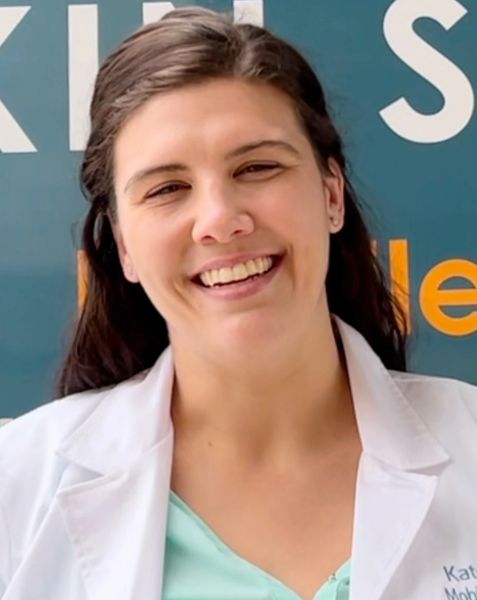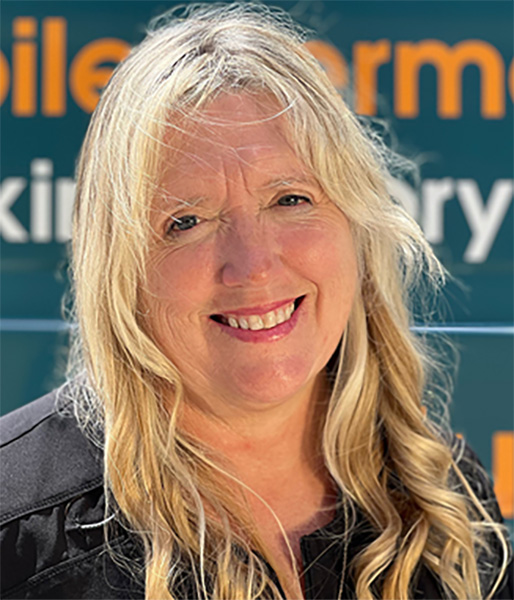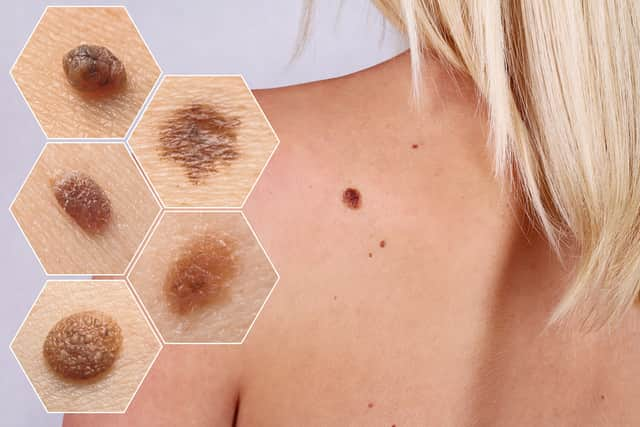
Skin cancer is an abnormal growth of skin cells that usually develops in areas of skin exposed to sunlight, but it can also form in other areas. Skin cancer is an umbrella term for different types of cancer of the skin, including melanoma, basal cell carcinoma, and squamous cell carcinoma. It is estimated that one in five Americans will develop skin cancer in their lifetime, making it the most common type of cancer in the United States.
Melanoma is the most deadly form of skin cancer and it can grow quickly and spread to other parts of the body. Basal cell carcinoma and squamous cell carcinoma are less deadly but can cause disfigurement or loss of function if not treated promptly. These types of skin cancer usually appear as a small, shiny bump or a non-healing sore. They can bleed easily and have a scaly, crusty surface.
The most important risk factor for skin cancer is unprotected exposure to ultraviolet (UV) radiation through sunlight or tanning beds. People with fair skin, blond or red hair, and light-colored eyes are also more susceptible to skin cancer. Other risk factors include a history of sunburns, family history of skin cancer, and a weakened immune system. To prevent skin cancer, it is important to avoid overexposure to UV radiation, use sunscreen with a high SPF, wear protective clothing, and avoid tanning beds.
If caught early, skin cancer is usually treatable with surgery and other therapies. Regular skin self-examinations and visits to a dermatologist can help detect skin cancer early. Warning signs of skin cancer include a new or changing mole, a sore or growth that does not heal, or changes in the appearance of a scar or birthmark. It is important to seek medical attention if any of these signs are present.
There are several ways that skin cancer can be diagnosed, but the most common method is through a physical examination. During a physical exam, doctors check the skin for any signs of abnormalities, such as moles or lesions, that could be cancerous.
In addition to a physical examination, doctors may also perform a biopsy to diagnose skin cancer. A biopsy involves removing a small sample of the skin tissue and examining it under a microscope. This allows doctors to determine if there are any cancerous cells present in the sample.
Other diagnostic tests that may be used to diagnose skin cancer include imaging tests, such as X-rays or an MRI. These tests can help doctors determine if the cancer has spread to other parts of the body. Blood tests may also be done to check for tumor markers, which are substances that are produced by cancer cells.
It is important to note that early diagnosis is key when it comes to skin cancer. Regular self-examinations and check-ups with a dermatologist can help detect any abnormal changes in the skin. If you notice any changes in your skin that persist or worsen over time, it is important to seek medical attention right away.
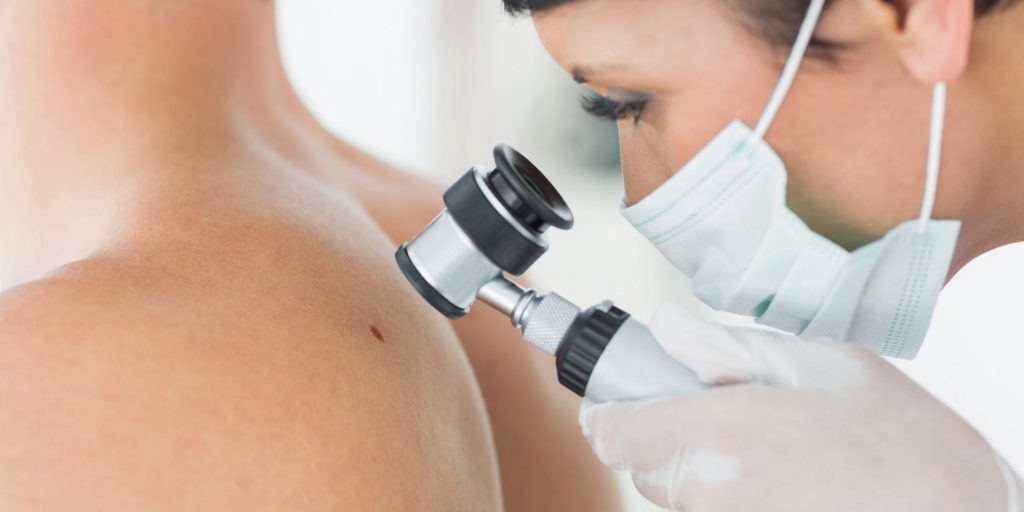
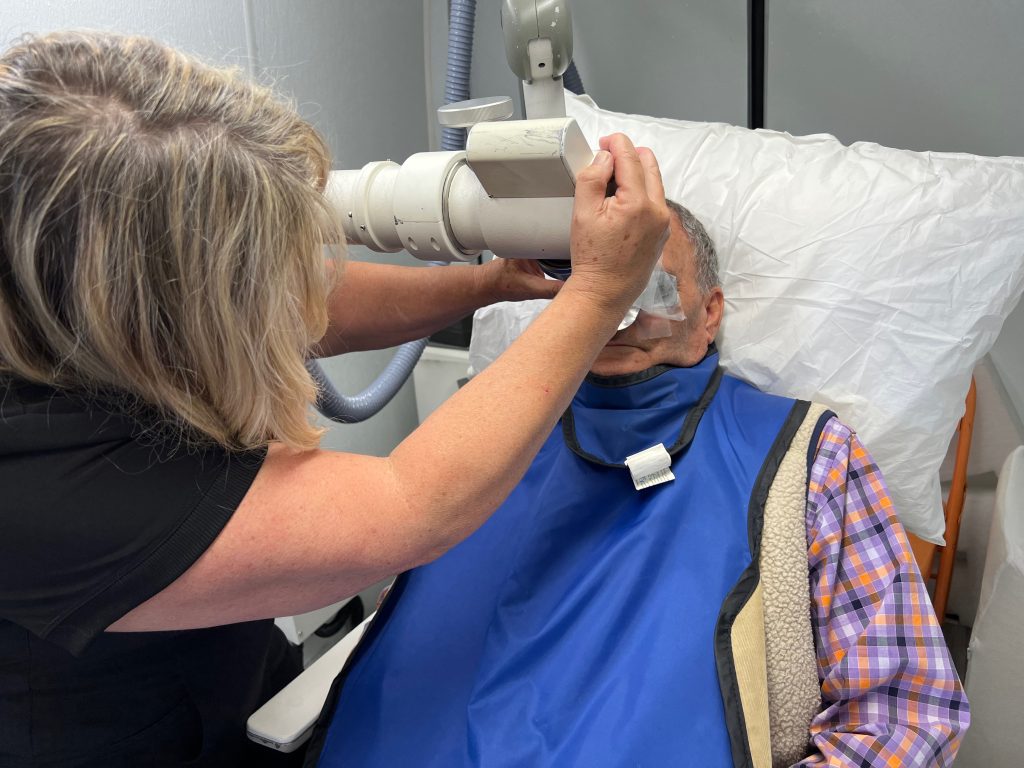
Skin cancer is typically treated with various surgical options such as excisional surgery, Mohs surgery, or cryosurgery. These methods involve the removal of the cancerous cells and any surrounding tissue. Chemotherapy and radiation therapy are also an option for treating more advanced cases of skin cancer. Radiation therapy can be delivered externally or internally, and often requires several sessions to be effective. It is crucial to seek treatment promptly and attend regular check-ups to prevent skin cancer from spreading or recurring.
One type of radiation therapy that has been used to treat skin cancer is superficial radiation therapy (SRT). SRT uses a low-energy radiation beam that only penetrates the skin’s surface, targeting cancerous cells without damaging surrounding healthy tissue. This technique is often used to treat small skin cancers or lesions in sensitive areas, such as the face or neck. SRT is non-invasive, painless, and requires minimal downtime, making it an attractive option for patients with skin cancer.
While SRT has shown promising results for treating skin cancer, it is important to note that it may not be suitable for all patients. Those with more advanced or aggressive skin cancers may require a combination of treatments, including surgery and chemotherapy. It is crucial to consult with a medical professional who can diagnose and recommend an appropriate treatment plan for each patient’s unique circumstance. Overall, early detection and treatment are key in combating skin cancer and ensuring the best possible outcome for patients.
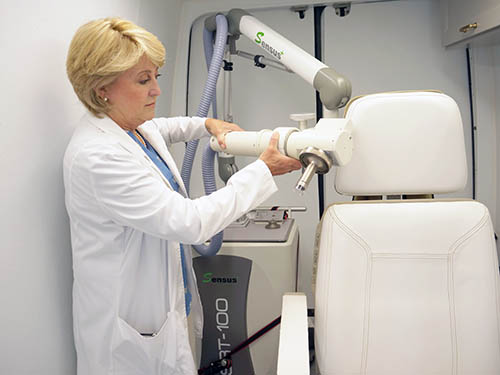
Yes. Superficial Radiation Therapy or SRT is an effective, established, and approved treatment alternative for many types of skin cancer. Learn more about SRT and Mobile Skin Solutions.
SRT or Superficial Radiotherapy is a highly successful skin cancer treatment option for Basal and Squamous Cell Carcinoma, without the pain and surgery involved in other skin cancer treatment methods like MOHS.

